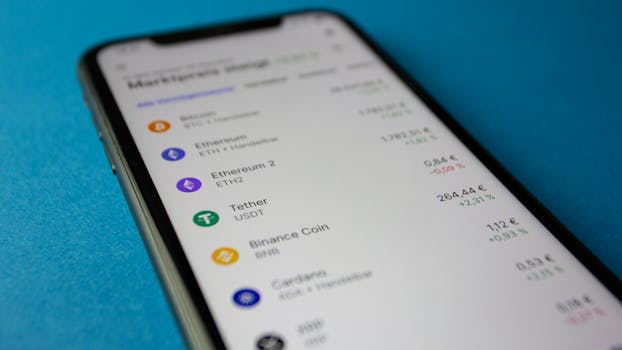
Navigating the Future: Emerging Trends in Fintech Technology
Fintech technology is revolutionizing the way we think about finance, and Fintech is at the forefront of this revolution. The term ‘fintech’ refers to the intersection of finance and technology, and it has given birth to a wide range of innovative solutions that are changing the face of the financial industry. In this article, we will explore some of the emerging trends in fintech technology and how they are shaping the future of finance.
Artificial Intelligence (AI) in Fintech

One of the most significant trends in fintech technology is the use of artificial intelligence (AI). AI is being used to improve customer service, detect fraud, and optimize business processes. For example, chatbots are being used to provide customer support, while machine learning algorithms are being used to detect and prevent fraudulent transactions.
Blockchain Technology

Another emerging trend in fintech technology is the use of blockchain technology. Blockchain is a decentralized, digital ledger that allows for secure, transparent, and efficient transactions. It is being used to facilitate cross-border payments, securities trading, and supply chain finance.
Mobile Payments and Digital Wallets

Mobile payments and digital wallets are also becoming increasingly popular in the fintech industry. Mobile payments allow users to make payments using their smartphones, while digital wallets provide a secure and convenient way to store and manage payment information.
Section 2: Fintech Trends to Watch

In addition to AI, blockchain, and mobile payments, there are several other fintech trends to watch. These include the use of big data and analytics, the rise of robo-advisors, and the growth of crowdfunding and peer-to-peer lending.
Big Data and Analytics

Big data and analytics are being used to gain insights into customer behavior, preferences, and needs. This information is being used to develop personalized marketing campaigns, improve customer service, and optimize business processes.
Robo-Advisors

Robo-advisors are automated investment platforms that use algorithms to provide investment advice and manage portfolios. They are becoming increasingly popular among investors who are looking for low-cost, efficient, and transparent investment solutions.
Crowdfunding and Peer-to-Peer Lending

Crowdfunding and peer-to-peer lending are also becoming increasingly popular in the fintech industry. Crowdfunding platforms allow individuals and businesses to raise funds from a large number of people, while peer-to-peer lending platforms allow individuals to lend and borrow money directly.
Section 3: The Future of Fintech

The future of fintech is exciting and uncertain. As technology continues to evolve, we can expect to see new trends and innovations emerge. Some of the potential trends that may shape the future of fintech include the use of quantum computing, the rise of decentralized finance (DeFi), and the growth of sustainable finance.
Quantum Computing

Quantum computing has the potential to revolutionize the fintech industry by providing faster, more secure, and more efficient processing of transactions. It could also enable the development of more complex and sophisticated financial models.
Decentralized Finance (DeFi)

DeFi refers to the use of blockchain technology to create decentralized, open-source financial systems. It has the potential to provide greater transparency, security, and efficiency in financial transactions.
Sustainable Finance

Sustainable finance refers to the use of financial technology to support sustainable development and environmental protection. It has the potential to provide new opportunities for investment, innovation, and growth.
Conclusion

In conclusion, the fintech industry is rapidly evolving, with new trends and technologies emerging every day. From AI and blockchain to mobile payments and digital wallets, the future of finance is being shaped by innovative solutions. As technology continues to evolve, we can expect to see new trends and innovations emerge, and it will be exciting to see how they shape the future of fintech.





